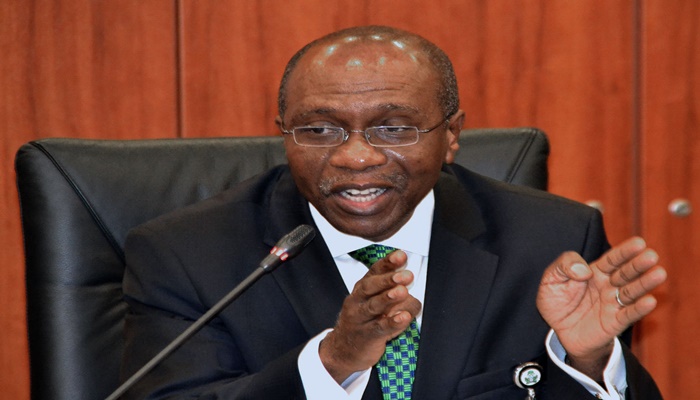
The Central Bank of Nigeria (CBN) retained the benchmark interest rate at 14 per cent to enable it achieve more clarity in the evolution of key macroeconomic indicators, the Governor, Godwin Emefiele, said yesterday.
The apex bank’s chief who spoke at the close of the Monetary Policy Committee’s (MPC’s) meeting in Abuja, listed the indicators that influenced the decision to include budget implementation, economic recovery, exchange rate, inflation and employment generation.
He said the effects of the fiscal policy measures taken to stimulate the economy had begun to manifest as evident in the exit of the economy from the 15-month recession.
He said the MPC voted to retain the Monetary Policy Rate (MPR) at 14 per cent; the Cash Reserve Ratio (CRR) at 22.5 per cent; the Liquidity Ratio at 30.0 per cent, while retaining the Asymmetric corridor at +200 and -500 basis points around the MPR.
“Although still fragile, the fragility of the growth makes it imperative to allow more time to make appropriate complementary policy decisions to strengthen the recovery,” pointing out that the Committee was of “the view that economic activity would become clearer between now and the first quarter of 2018, when growth is expected to have sufficiently strengthened and gains in receding inflation, very obvious.”
He held the view that the most compelling argument for holding interest rate at 14 per cent, “was to achieve more clarity in the evolution of key macroeconomic indicators, including budget implementation, economic recovery, exchange rate, inflation and employment generation.”
On what will warrant a change of interest rate, Emefiele said, “monetary policy authorities in a year, if they must change their stance will not do it for more than once or twice, so there is nothing wrong or extraordinary in the MPC holding positions constant for a considerable length of time.”
In retaining the MPR at 14 per cent, he said: “We started 15 months ago at a point where growth was decelerating, inflation had doubled from nine per cent to 18 per cent in January 2016 to January 2017, we saw the risks in foreign exchange markets and the massive depreciation that happened in the foreign exchange market at a point the market was at about N525 to the dollar.
“But by virtue of the fact that we decided to hold position (we had taken some tight monetary policy stance), we began to see that growth had started to improve all be it fragile at 0.55 per cent, inflation was moderating, although slowly to where it is now from about 18.7 per cent or so in January, to 16 per cent now, we’ve seen exchange rate appreciate from N525 in February to N360 at this time. What that means is that certain correct decisions had been taken and that there is a need for us to see how far we will begin to have positive effects of those decisions.”
Emefiele also denied claims that the apex bank was overfunding the federal government. While reacting to a report that a member of the MPC had raised alarm that the apex bank was overfunding the government, he said “the CBN has not overfunded the Federal Government,” saying “the Federal Government, on its own decided that all its funds that are in banks, in both local and foreign currency should be moved to the CBN, into the Treasury Single Account (TSA) like we all know.”
Putting the issue into perspective, the CBN governor explained that “if as the customer of a bank you have fixed deposit in an account and for some reasons you want some spontaneous financing to meet your obligation, your own commercial bank can be approached and asked to allow the customer overdraw his account temporarily, your bank will oblige you. This has nothing to do with the CBN or any bank but the assurance I would like to give to you is that there is no truth in the initial story of overfunding because whatever is overdrawn is much less than what the federal government also has it CF account.”
He assured Nigerians that the MPC “recognise that there is a need to deal with the issue of interest rate and we are very conscious of the need to bring down interest rates but we think we are not there yet because if we reverse the trend or if we do what most people expect, the truth is that it may reverse the gains we have so far achieved in exchange stability and moderation of inflation. That’s why we decided to wait and see how far we go in these areas.”
Credit: The Nation






